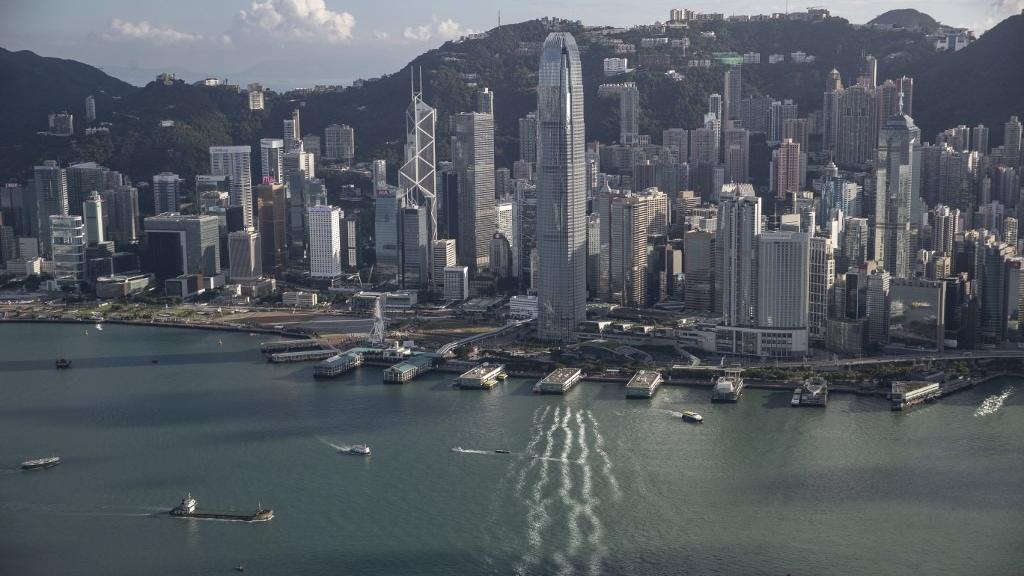 This Sept 20, 2020 photo shows a general view of the Victoria harbour next to commercial and residential buildings in Hong Kong. (MAY JAMES / AFP)
This Sept 20, 2020 photo shows a general view of the Victoria harbour next to commercial and residential buildings in Hong Kong. (MAY JAMES / AFP)
Companies planning to move their production to Hong Kong or expand production there are finding that they don’t have enough space to set up automated production lines.
The findings were in a reindustrialization study released by the Hong Kong Productivity Council on Monday.
The study showed that 52 percent of the surveyed companies have plans to move or expand their production lines to Hong Kong, with about 40 percent of them saying that they will need 10,000 square feet or less of land
The study showed that 52 percent of the surveyed companies have plans to move or expand their production lines to Hong Kong, with about 40 percent of them saying that they will need 10,000 square feet or less of land. But most of them face the challenge of not having enough space to set up automated production lines, unloading space, and low floor ceilings.
Jointly conducted by the HKPC and Hong Kong University Business School, the study interviewed 184 companies via questionnaires from July through September, focusing on the conditions, feasibility and challenges of “re-industrialization” in three of Hong Kong’s promising sectors: food technology, health technology and green technology.
ALSO READ: HK’s manufacturing industries must rise again
In a focus group discussion organized by the HKU for large-scale local companies, many of them indicated that “new-generation semiconductors” have the potential to develop into an emerging industry of re-industrialization, according to Edmond Lai, the HKPC’s chief digital officer.
“Hong Kong, as the core hub of external circulation, and with a good intellectual property protection system, has an absolute advantage in attracting a new generation of semiconductor manufacturers to set up factories in Hong Kong, converging the entire new generation of the semiconductor industry chain through the Northern Metropolis in the long run,” Lai said, referring to the proposed new high-tech hub for the Yuen Long and North districts.
In terms of environmental protection, the study found that more than 60 percent of green companies require more than 10,000 square feet of plant space to set up production lines in Hong Kong, Lai added.
The Fourth Industrial Revolution, Industry 4.0 or 4IR, refers to a new wave of manufacturing trends that relies on technologies such as automation, data and machine learning. Large-scale machine-to-machine communication and the internet of things are being integrated to increase automation, and produce intelligent machines capable of analyzing and diagnosing problems without human intervention.
READ MORE: HK budget unveiled with focus on industry support, welfare
More than half of the local enterprises in food, health and green technology believe that the primary advantage of developing the Fourth Industrial Revolution is to increase productivity. Half of the companies reported they are aware of Industry 4.0, with 58 percent of companies saying that they have invested in research and development, and 16 percent planning to move or expand their R&D to Hong Kong, according to the study.
In her Policy Address, Hong Kong Chief Executive Carrie Lam Cheng Yuet-ngor also made it clear that “re-industrialization” should be rooted in Hong Kong, making innovation and technology a new economic driver for the city.
“With technology, infrastructure and talent in place, coupled with the active support of the government, re-industrialization in Hong Kong has great potential and room for development, which can enable the ‘Made in Hong Kong’ brand to shine again,” Lai said.


